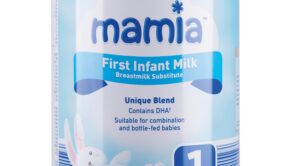New EU consumer rules enter into force in May 2022
31 May 2022
On 28 May 2022, new rules on consumer rights in the European Union as Directive (EU) 2019/2161, the Better enforcement and modernisation Directive (also known as the Omnibus Directive) came into force.
The directive amends previous EU consumer rules contained in the following:
- Directive 93/13/EEC on unfair terms in consumer contracts;
- Directive 98/6/EC on the indication of the prices of products offered to consumers;
- Directive 2005/29/EC on unfair business-to-consumer commercial practices;
- Directive 2011/83/EU on consumer rights.
The new directive’s rules address the challenges posed by digital traders, platforms and marketplaces, and will equip consumer authorities with stronger tools to enforce consumer rights.
“The new rules will ensure that consumers are shielded from unfair practices online,” said vice-president for Values and Transparency, EU Commissioner Věra Jourová.
EU Commissioner for Justice and Consumers, Didier Reynders added: “European consumers are entitled to the highest standards of protection. For instance, while searching for a product online, transparent information must now be provided by platforms about the way offers are ranked. This is to avoid misleading commercial practices. Access to individual remedies, as well as penalties for cross-border infringements will also be reinforced.”
In brief, the new consumer protection rules will introduce:
- An obligation on the digital platform / marketplace to clearly state whether a buyer (the consumer) engages in a purchasing transaction with a third-party vendor that is a professional seller or another private individual (consumer-to-consumer transactions are not covered by EU legislation)
- An obligation on professional traders to provide information on who is responsible for delivery and returns
- An obligation on platforms and marketplaces to inform consumers about how seller offers are ranked in search results and identify paid advertisements, when this is the case
- An obligation on sellers for transparency on ‘tailored prices’ based on consumer location and behavioural profiling
- An obligation on sellers to disclose how they operate price reductions, which must be referenced against the product’s regular price recorded within the previous 30 days
- A ban on the resale of event tickets bought in bulk by professional traders that use online ‘bots’
- Fines of up to 4% or €2 million of a trader’s turnover for breaches of consumer rights
- Tackling ‘dual quality’ products whereby branded goods sold as identical have different compositions in different Member States
- A ban on manipulating or posting fake reviews or endorsements either directly or via third parties
The remedies for victims of unfair commercial practices include a right to compensation and contract termination. In terms of enforcement, it will “remain a matter for the Member States to choose the types of penalty to be imposed and to lay down in their national law the relevant procedures for the imposition of penalties in the event of infringements”.
The directive also states that “Member States should ensure that remedies are available for consumers harmed by unfair commercial practices in order to eliminate all the effects of those unfair practices.”
Directive (EU) 2019/2161 on the better enforcement and modernisation of Union consumer protection rules was adopted in November 2019. Member States are required to transpose the Directive by 28 November 2021 and to apply its provisions from 28 May 2022.
The main provisions of Directive 2019/2161, as above, will be transposed in Ireland through the Consumer Rights Bill 2022, along with European Directive 2019/770 on certain aspects concerning contracts for the supply of digital content and digital services and the Directive 2019/771 on certain aspects concerning contracts for the sale of goods.
A significant effect of the Omnibus Directive is the increased enforcement powers for national consumer authorities and regulators.
In relation to enforcement of consumer rights and trader compliance with the terms of the Directive in Ireland, the Competition and Consumer Protection Commission (CCPC) will continue to be responsible for the enforcement of the provisions of general consumer protection, while sectoral regulators will maintain their current enforcement responsibility for their own areas.
The CCPC however will have enhanced powers to uphold consumer rights, particularly where traders do not provide the remedies or reimbursement to which consumers are entitled under the future Consumer Rights Act 2022.




 Print
Print






Fans 0
Followers